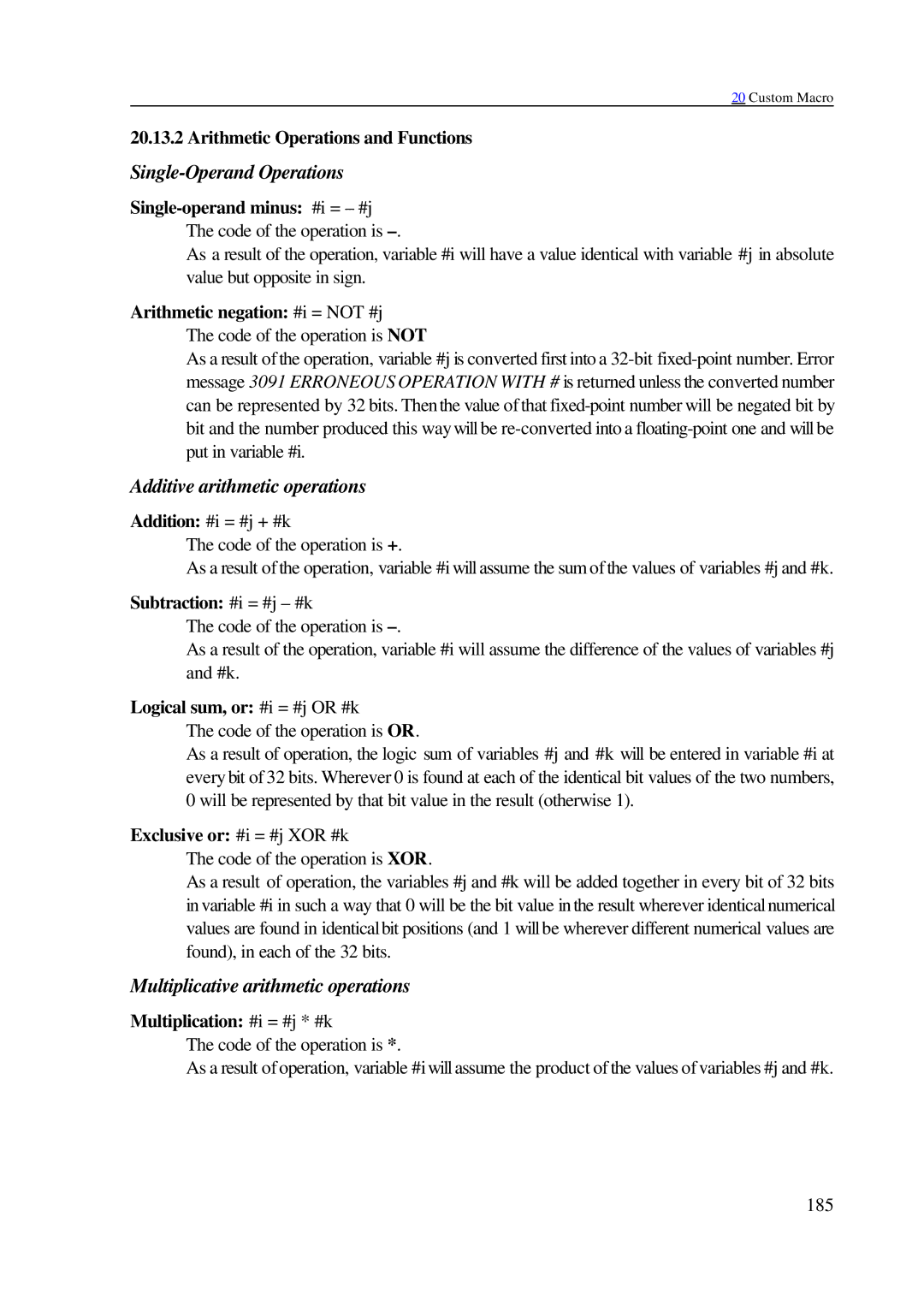20 Custom Macro
20.13.2 Arithmetic Operations and Functions
Single-Operand Operations
Single-operand minus: #i = – #j The code of the operation is –.
As a result of the operation, variable #i will have a value identical with variable #j in absolute value but opposite in sign.
Arithmetic negation: #i = NOT #j The code of the operation is NOT
As a result of the operation, variable #j is converted first into a
Additive arithmetic operations
Addition: #i = #j + #k
The code of the operation is +.
As a result of the operation, variable #i will assume the sum of the values of variables #j and #k.
Subtraction: #i = #j – #k
The code of the operation is
As a result of the operation, variable #i will assume the difference of the values of variables #j and #k.
Logical sum, or: #i = #j OR #k
The code of the operation is OR.
As a result of operation, the logic sum of variables #j and #k will be entered in variable #i at every bit of 32 bits. Wherever 0 is found at each of the identical bit values of the two numbers, 0 will be represented by that bit value in the result (otherwise 1).
Exclusive or: #i = #j XOR #k
The code of the operation is XOR.
As a result of operation, the variables #j and #k will be added together in every bit of 32 bits in variable #i in such a way that 0 will be the bit value in the result wherever identical numerical values are found in identical bit positions (and 1 will be wherever different numerical values are found), in each of the 32 bits.
Multiplicative arithmetic operations
Multiplication: #i = #j * #k
The code of the operation is *.
As a result of operation, variable #i will assume the product of the values of variables #j and #k.
185
